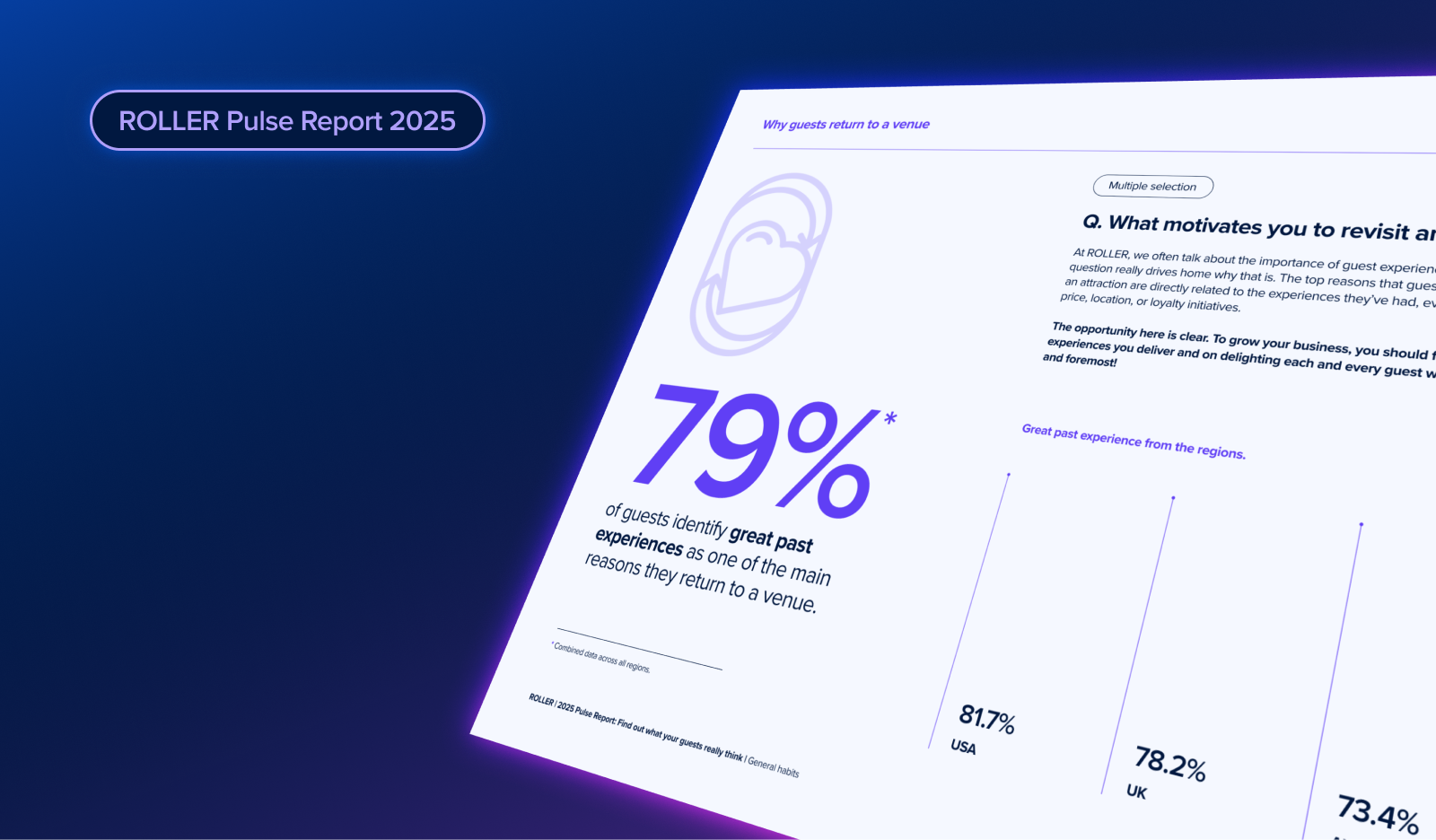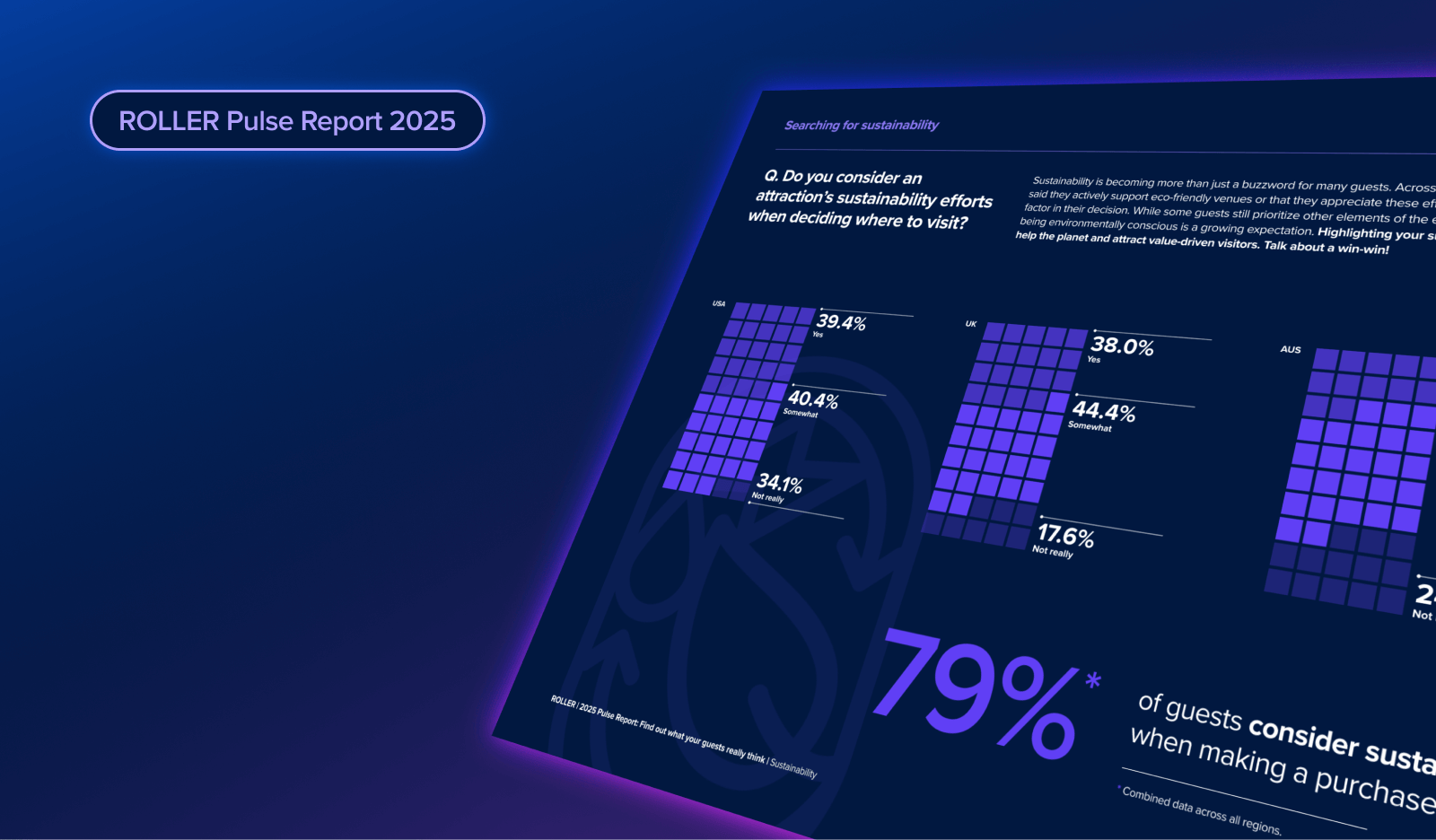Look Who's Talking: Leveraging the Power of Word of Mouth

The power of word of mouth has accelerated in recent years and is showing no signs of slowing down. The influence that your guests possess to either bring you up or tear you down is seen throughout all industries and in many different forms. One thing that remains consistent is that the megaphone is getting louder and louder, and the message is becoming more and more clear… even when fact cannot be discerned from fiction.
How does this tie into guest experience? Many operators are concerned with guest satisfaction while the guest is onsite, while marketers hone in on how the business is being perceived online. But there is a direct correlation between the onsite guest experience and the way that the experience is then communicated through word of mouth. When marketing and operations work closely together, the control over word of mouth, and your venue’s reputation, becomes stronger.
It is well known that people are much more likely to share word of mouth after a negative experience than they are after a positive one, which suggests that the word that gets around town is not necessarily reflective of the actual satisfaction that guests have when they visit you. Because of this, you must be actively working to reverse this flow and encourage your most satisfied guests to influence others to visit.
Guests influencing others to visit is one of the key drivers to guest loyalty, because it turns guests into active members of your marketing team. Here are three avenues that guests share their feedback with others, and how you can work each of them to your advantage.
Personal network of family and friends
Just because social media has been all the rage since the mid-2000’s, does not discount the value of IRL human interactions. If you offer a monetary incentive to encourage guests to visit again, extend the offer to family and friends of the guest using the deal, giving them the opportunity to introduce new guests to your business. On the same wavelength, if you offer discounts for annual passholders or members, include discounts on admission that they can use or allow for family and friends to use. Getting in the first time on a discount gives a great first impression and shows your commitment to recognizing loyalty.
For example, if you have automated emails sent to guests the day after their visiting inviting them back with a 10% coupon, make the coupon available for up to six guests, not just the guest getting the email.
Engage on social media
I’ll address the elephant in the room here. Suggesting that you engage with your guests on social media is an incredible oversimplification of a subject that deserves way more than this paragraph. But in the interest of brevity, the key message is that you should be merging your onsite experience with your online connection. When the guest is onsite, naturally encourage them to post by emphasizing the most visually appealing parts of your facility – some take it to the next level by recommending a hashtag that guests can use to further engage back with the brand when they post. Then, by responding to their posts and sharing them on your accounts, the guest feels more connected, more engaged, and glad that they visited – and shared the experience with others.
When engaging with your guests on social media, make sure you avoid these seven mistakes when addressing complaints.
Encourage online reviews
Like social media, online reviews are in the public arena and help to influence whether your prospective guests become actual guests. How big is that impact? Really big. In fact, 90% of your prospective guests are heavily influenced by online reviews. This means whatever your preferred channel is (whether it is TripAdvisor, Yelp, Facebook Reviews, or Google Reviews), you should be strongly suggesting that your satisfied guests are sharing their experience, especially when looking to close the gap between sharing positive experiences and negative ones.
This can be done through signage, business cards, post-visit emails, or good-old-fashioned asking them directly, and must be done with a strong emphasis. With their global reach, online reviews are the quickest way for a prospective visitor to compare you to your competitors. Also, it’s much more fun to celebrate positive reviews than it is to try to put out fires from negative ones.
One final note on encouraging online reviews: don’t offer an incentive. Guests should not be posting a 5-star review because they’ll get 20% off on their next visit; they should post because you delivered a phenomenal experience. This is not a true reflection of the experience, does not lead to guest loyalty, and even worse, you can be penalized for it. Feel free to incentivize your employees to get positive reviews, but not your guests.
By incorporating word of mouth into both operational and marketing activities, you can take a more active role in driving loyalty through the guest experience.
Related articles

.png)
What the 2025 Pulse Report Reveals About Guest Booking Behavior at Attractions

2025 Pulse Report: How Sustainability Is Shaping Guest Expectations
Enhance your guest experience
Get free education, tips and inspiration to help you run a successful venue.